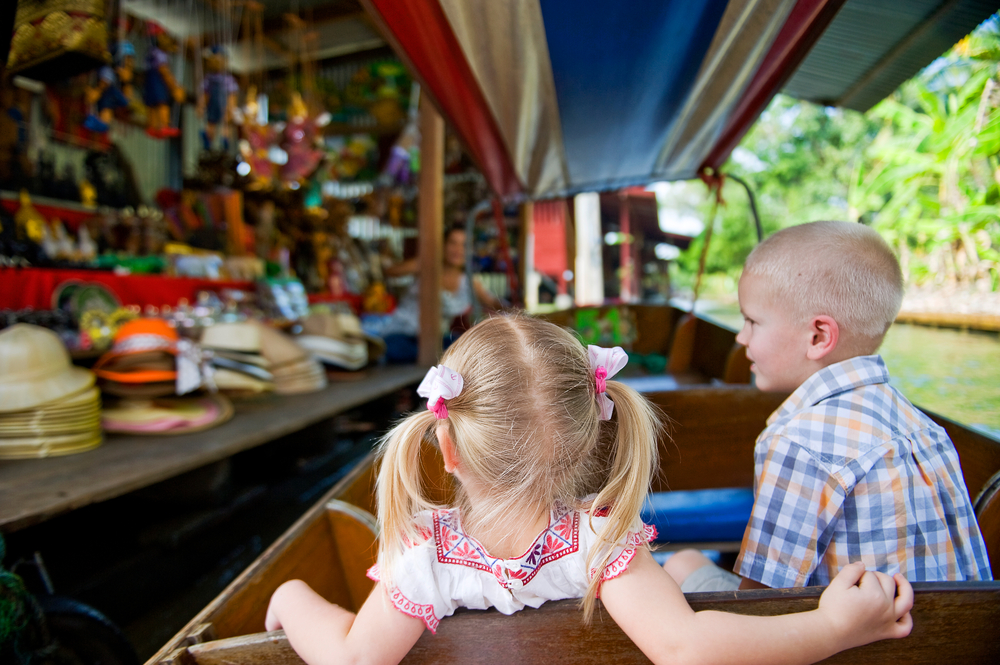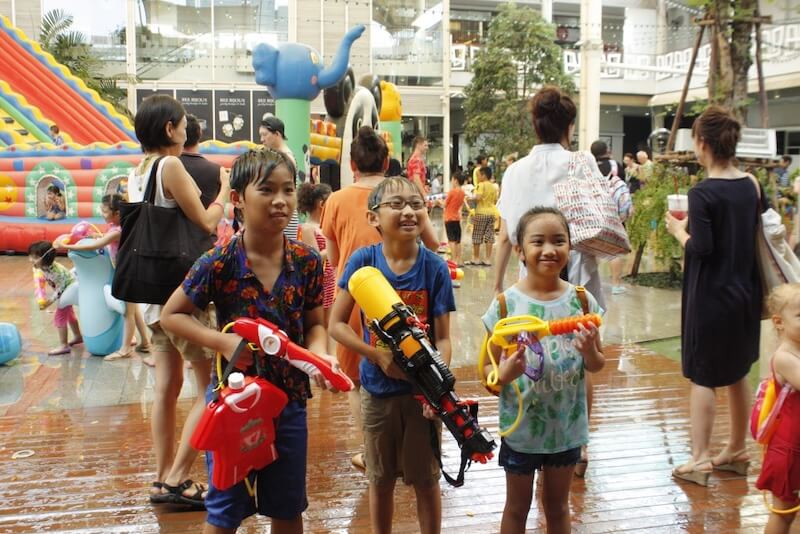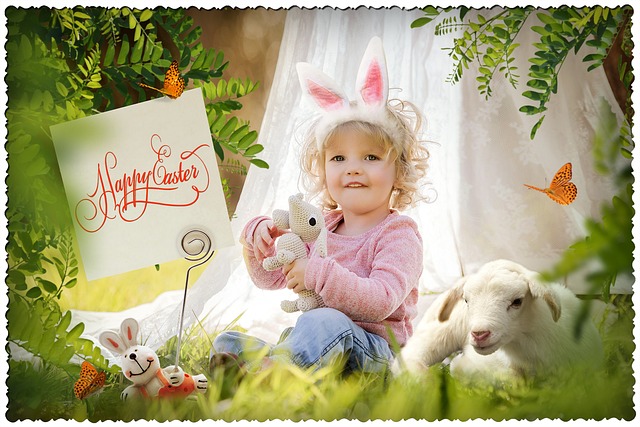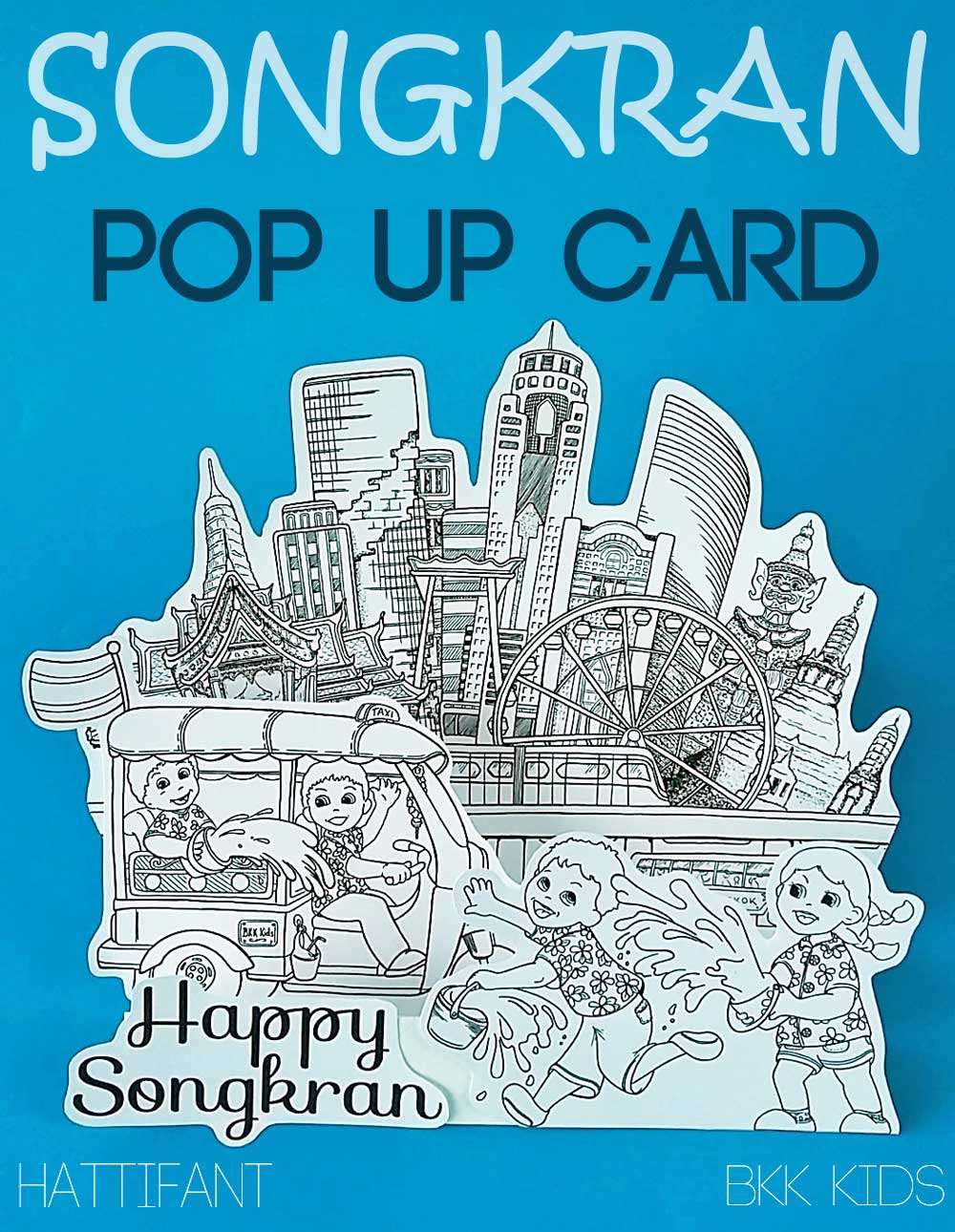Helping your Third Culture Kid adapt, adjust — and answer that question with a smile.
Bangkok is a cosmopolitan city where the culture of children is often in contrast to their race, ethnicity, or country of origin. Children may appear to be from a certain country of origin by their features, but they have often lived away from that home country for a majority of their childhood. Their experiences tell us a different story about what is home to them.
These are the so-called third culture kids (TCKs). A child may have been born in Germany, but be able to speak Chinese, German, English, and Thai. This child may have gone to school in four different countries. When he goes back to Germany, he may feel odd and be unable to relate to his peers. For example, he may refer to specific multicultural experiences that his friends cannot relate to. When he comes back to his host country, he is much more comfortable because his experience is shared by others. While being a TCK has challenges, there are many things parents can do to help children and adolescents find success in their emerging cultural identity.
TCK is defined as a person who has spent a significant part of his or her developmental years outside the parent’s culture. The TCK frequently builds relationships to all the cultures while not having full ownership in any. A TCK’s life is characterized with high mobility and traveling between different worlds. (Pollack, Growing up Among Worlds, 1999). For TCK kids, their basic value system, sense of identity, and establishment of core relationships with family and friends have not developed in their home culture so they often use their host country to figure out how to behave in different contexts. TCK kids have to comprehend the rules in each country so they can better adapt to each new background.
As a result, it takes longer for them to develop their personal identity because they have to deal with more change and then have to synthesize the information from the past and their current life. While it is exciting for individuals to live abroad and see new things, it’s also a loss for them as they have had to say so many “good-byes”. Some of the things kids have said regarding the TCK experience are:
“I don’t know what home is. It’s confusing. I hope someone does not ask where I am from because I don’t know what to say.”
“Out of the blue, I feel a sense of sadness and I can’t explain why.”
“I am not sure where I am going to be next year. I am not sure how much to invest because I will be leaving”.
As parents, what can you do to help your child deal with transition and change as you make another move to a new country?
Provide Empathy. Empathy is trying to understand what it is like in someone else’s shoes. Empathy is not just saying the words but really conveying your understanding by asking questions, listening, and being there through the child’s pain.
Example: Your child misses his old friends and does do not want to move to a new country. He is angry, acting out, and mad about moving.
Non-Empathetic Response: “You will make new friends like you always do. Do not worry about it. You will be at a better school with nicer facilities. We have to move because of my job. I thought you understood that.”
Empathetic Response: “I know that it is hard to miss your friends and I get it. I am sorry we have to leave and we will do our best to come back and keep in touch with your friends. What kind of activities do you want to do with your friends before you leave? I know that they are very important.”
It is important to acknowledge their feelings as real so he/she feels like they can talk to you when he/she is sad and that your child feels validated for their experience.
Synthesising their experiences from the past. You can talk about their different experiences in each country. Since a child has experienced change, what helps is that you are talking about his/her experiences and that you are emotionally holding them through the changes. What hurts a TCK child the most is that he/she can feel alone and misunderstood by so many people. They have had a life that is unrecognizable to many who live in their home country or their host country.
If parents can show a child that they are genuinely interested in the child’s feelings, it will convey love, trust, and affection. Many times the parents do not want to know because they are experiencing their own grief and guilt for what has happened in the past. The truth is that the more you are open to talking about his/her experiences, the better it is for you, your child, and your relationship with one another.
Be clear about your future plans. We tend to be protective of our kids because we do not want to hurt them so we postpone the news of moving so they are not hurt and are not feeling the anxiety. If you do not tell your child, they cannot trust you and are more anxious about what is going to happen. It is important to be honest and share what is happening so they can feel a sense of control.
When a child has some notice about the fact that he/she is leaving, they can process their feelings of loss and can have time to mourn what has been left behind. Sometimes your child is “fine” and does not feel any sadness at the moment. That is okay too as long as you continue to check-in and notice other signs of how he/she is processing their feelings. It is important for your child to have a chance to say “good-bye” in whatever way he/she can.
As parents, you can ask the following questions:
How would you like to say good-bye?
How do you want to mark this transition?
Do you want to draw a picture?
Do you want to take pictures and make an album?
Do you want to do individual activities with specific friends?
Do you want to do a party?
What ritual do we do the night before we leave?
Modelling behaviour. How can I model to my child about how to deal with change? You have to model by immersing yourself in your new culture. You can make friends and appreciate new things in your environment. It is not easy for the accompanying spouse who has had to give up one’s career, say good-bye to their friends/family, and start fresh. The children pick up on these feelings from a parent and can act out. It is important for parents to model how to talk about personal experiences and have a better outlook about possibilities. It is natural to experience anger, frustration, and loss when you move.
How can we move from the anger to a place of enjoyment and feeling fulfillment? That happens when you acknowledge the loss, identify your needs, and discover ways to fulfill your needs. For your children/adolescents, it will help if you plan play dates and help them find people in the community that they feel connection to. It does not in any way substitute the friends they had, but it helps them channel their feelings of loneliness and longing by developing new connections.
And finally, stress that being a third culture kid is a gift because he or she has a chance to learn valuable lessons that cannot be taught in school. Many TCKs learn to value relationships above conveniences as they have lived in [different] places and it is a gift they carry with them wherever they may go.” (Pollack, Third Culture Kids: Growing up Among Worlds, 1999). They are highly adaptable and learn things quickly due to high mobility and many cross cultural transitions.TCKs think outside the box and are able to understand people from diverse backgrounds.
In order for a child to thrive and take advantage of their international experiences, he/she needs to be taken into consideration and be cared for as they deal with the confusion, anxiety, and grief. TCK kids have the same needs as any child to be loved, valued, and to experience being a part of a loving community. As parents, you have the ability to help your child navigate through this difficult, challenging, and amazing experience by being emotionally available to the full range of emotions that can come up for your child as you start your next journey.
References:
Pollack, David C, Van Reken, Ruth E, 1999, Third Culture Kids, Growing up Among Different Worlds, Intercultural Press, London.
Bushong, Lois, 2013, Belonging Everywhere and Nowhere: Insights into Counseling the Globally Mobile, Mango Tree Intercultural Services, Indianapolis, Indiana, USA.
By Anita Barot, a licensed marriage and family therapist currently based in Bangkok, with a psychotherapy practice, Lotus Therapy, in EmQuartier/Phrom Phong. Originally from California, USA, she has over 10 years of experience counseling children, adults, couples, and families. Anita specializes in Third Culture Kids, Women’s Issues, and Parenting.
To learn more about Anita and her practice, please visit lotustherapy.com.
Register your email address here and we’ll notify you when a new article gets uploaded.














